The signs of an abusive relationship can be subtle at first, but they often escalate quickly and can have serious consequences. In this article, we’ll explore some of the warning signs of an abusive relationship and help you understand when it’s time to seek help.
Besides physical abuse, which is easy to recognize, there exists emotional or psychological abuse that slowly chips your mental health, confidence, self-esteem, and even your identity.
Most people fail to recognize or ignore emotional abuse because society thinks emotional abuse is “okay”, but physical abuse is a crime. The only problem with emotional abuse is it’s not visible!
Love is meant to be kind, supportive, and uplifting. However, not all relationships are built on a solid foundation of love and respect. Unfortunately, many people find themselves trapped in abusive relationships, where the person they love becomes their abuser.
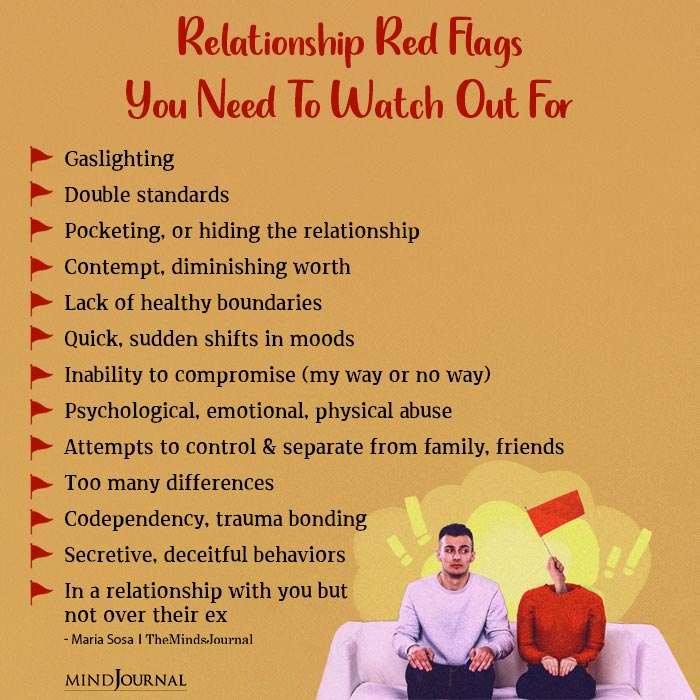
If you are unsure about being in an abusive relationship, then here are 6 signs to find it out:
6 Early Signs Of An Abusive Relationship
1. They yell for no reason.
Everyone gets mad at their spouse from time to time. It just happens. But if you find that your partner yells at you often and for seemingly no reason, yeah, this is a type of abuse.
Related: 10 Common Patterns Of Verbal Abuse To Watch Out For
2. They call you names.
Name-calling is a type of abuse. No one should ever call you names, be it “bitch” or “asshole” or anything like that. It’s a type of bullying that is completely unacceptable.
3. They try to make your plans for you.
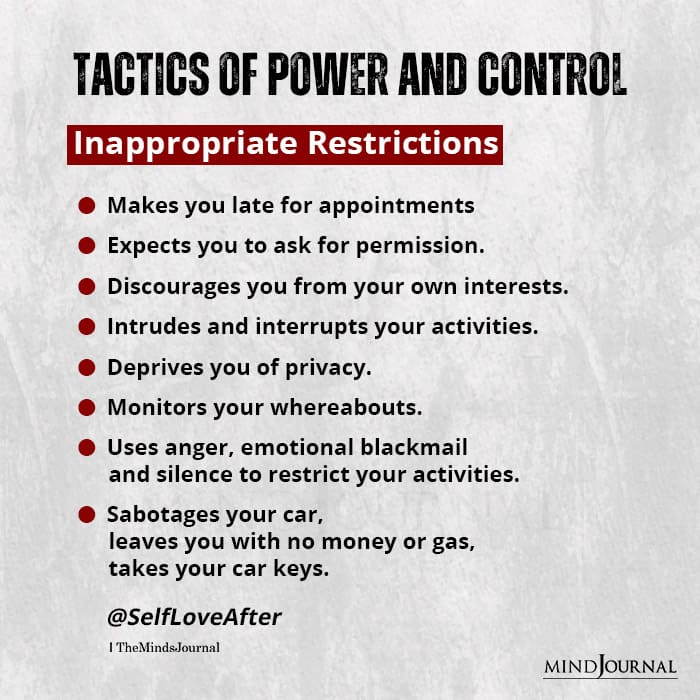
Even if they don’t yell or call you a name, when your partner starts making plans for you, like where you’re vacationing or who you can or can’t hang out with, it is a type of abuse. Control is abuse.
Related: How Society Teaches Men To Abuse Women – A Man’s Perspective
4. They control your money.
This type of controlling, as with your schedule, is abuse. If they’re constantly concerned about your money or giving you only a modest amount of money to live on (say if you’re a homemaker) this is a type of abuse as well.
5. They manipulate and intimidate.
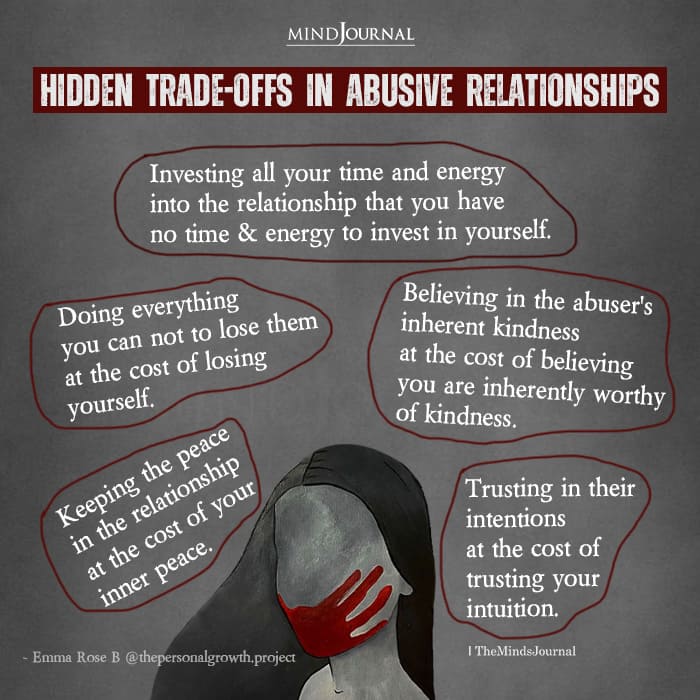
Manipulation and intimidation often don’t require any kind of yelling or name-calling or controlling, but they use your thoughts and emotions and turn them against you. They know your weaknesses and cleverly exploit them.
Related: How A Narcissist Plays You And How Their Cycle Of Abuse Works
6. They strike you, sexually assault you, or verbally torment you.
Under no circumstance is it not abuse if your partner hits you. If you say no to sex and they force themselves on you, that’s also abuse. Always. If they verbally assault you, it’s abuse. Seek help if you’re in this kind of situation.
“The quiet but inexorable breaking down of self-esteem is much more sinister – it’s a violation of the soul.”
― Rachel Abbott
If you have realized that you are in an abusive relationship, then try to get rid of it with professional help. Also, check on your mental health!
Related video on abusive relationship signs and how to leave it:
Recognizing the signs of abuse is crucial. Look out for controlling behavior, isolation, manipulation, and any form of physical or emotional harm. Let us know in the comments below and seek help with a person you trust!
Source Higher Perspective.com
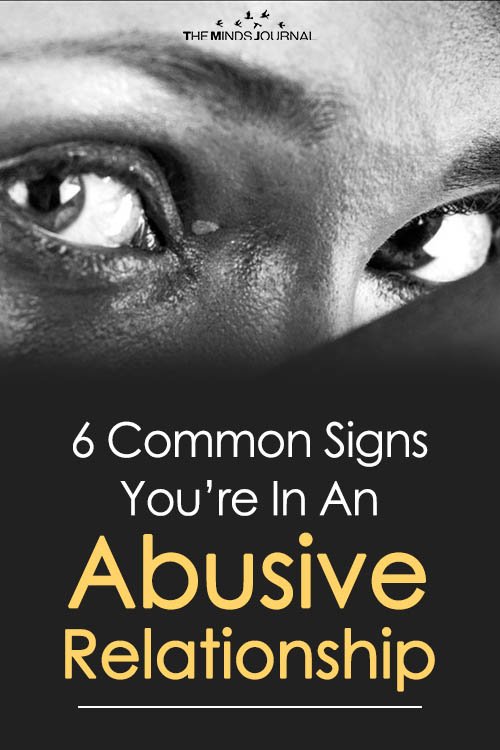
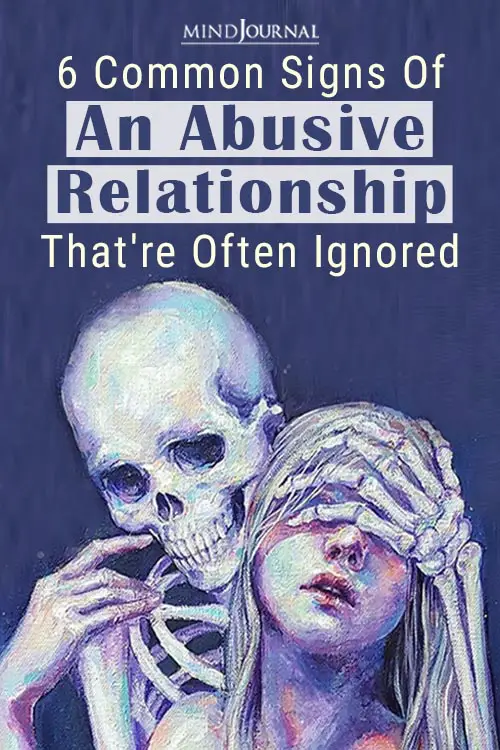
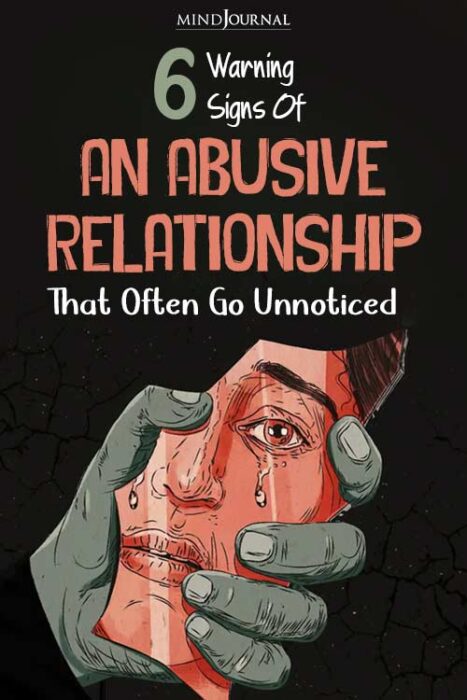
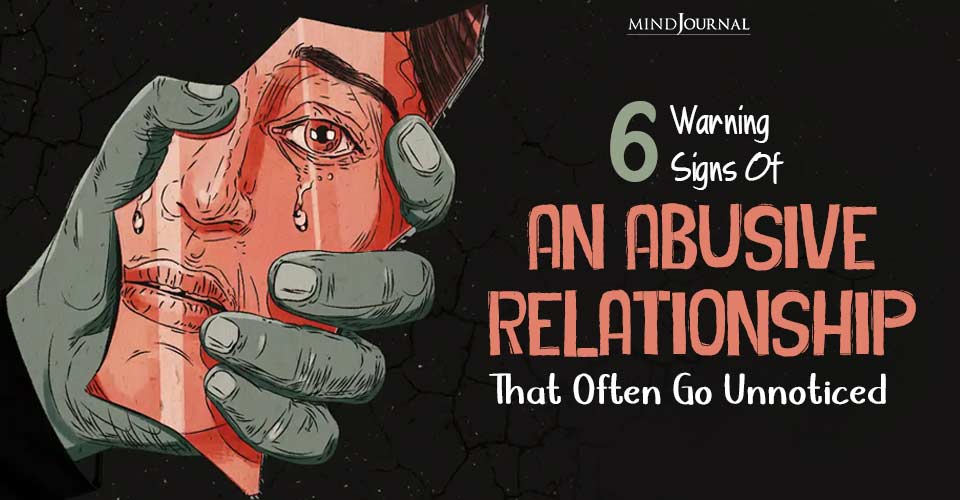







Leave a Reply
You must be logged in to post a comment.